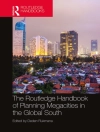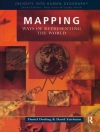Justin O’Connor and Lily Kong The cultural and creative industries have become increasingly prominent in many policy agendas in recent years. Not only have governments identified the growing consumer potential for cultural/creative industry products in the home market, they have also seen the creative industry agenda as central to the growth of external m- kets. This agenda stresses creativity, innovation, small business growth, and access to global markets – all central to a wider agenda of moving from cheap manufacture towards high value-added products and services. The increasing importance of cultural and creative industries in national and city policy agendas is evident in Hong Kong, Singapore, Taiwan, South Korea, Beijing, Shanghai and Guangzhou, Australia, and New Zealand, and in more nascent ways in cities such as Chongqing and Wuhan. Much of the thinking in these cities/ countries has derived from the European and North American policy landscape. Policy debate in Europe and North America has been marked by ambiguities and tensions around the connections between cultural and economic policy which the creative industry agenda posits. These become more marked because the key dr- ers of the creative economy are the larger metropolitan areas, so that cultural and economic policy also then intersect with urban planning, policy and governance.
विषयसूची
Creative Economy Policies.- Policy Transfer and the Field of the Cultural and Creative Industries: What Can Be Learned from Europe?.- Creative Industries Across Cultural Borders: The Case of Video Games in Asia.- Creative Clusters.- Spaces of Culture and Economy: Mapping the Cultural-Creative Cluster Landscape.- Beyond Networks and Relations: Towards Rethinking Creative Cluster Theory.- The Capital Complex: Beijing’s New Creative Clusters.- A Creative Class?.- The European Creative Class and Regional Development: How Relevant Is Florida’s Theory for Europe?.- Getting Out of Place: The Mobile Creative Class Takes on the Local. A UK Perspective on the Creative Class.- Asian Cities and Limits to Creative Capital Theory.- The Making of Creative Cities.- The Creative Industries, Governance and Economic Development: A UK Perspective.- Shanghai’s Emergence into the Global Creative Economy.- Shanghai Moderne: Creative Economy in a Creative City?.- The Politics of the Creative City.- Urbanity as a Political Project: Towards Post-national European Cities.- Alternative Politics in Urban Innovation.












